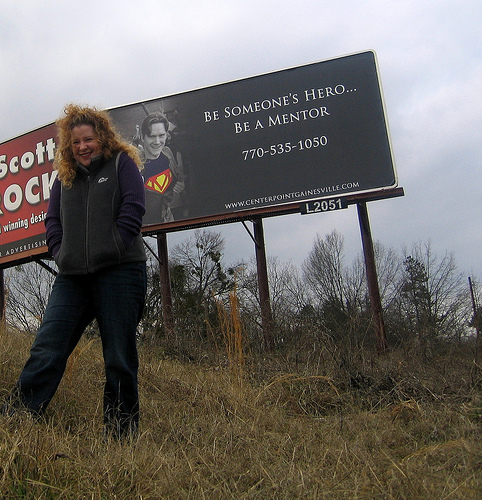You’ve learned the lessons well. You first learned to live on less than you earn. Next you learned to seek advice from those who are competent. Lastly, you’ve learned to make gold work for you. – George S. Clason

For those who find trial & error a slow and painful way to learn, might I suggest a mentor? It is step two in this pattern, and a useful path to improvement.
What does that mean?
This, to me, is a sound basis for personal finance. But the principles apply to other areas of your life. Anything you wish to make abundant, these principles apply.
But the points are simple, if sometimes difficult to achieve. First, conserve what you wish to enjoy more of. That can be hard, because we want more right now, but it takes a little time.
Next, it helps to seek out an expert, someone who has achieved that which you seek to achieve. Learn their methods and their reasons for their choices. Then duplicate them, as appropriate to your situation.
Lastly, learn to get what you want to work for you without you having to do the work. With money, it’s the power of compound interest. With time it might be ad revenue or book sales while you sleep.
Why is learning methods of work important?
By that I mean that there are methods or patterns which can apply to many situations. By learning the method once, and adapting it to each situation, you can move quickly in each new situation. You can move with confidence, or at least less with less concern or worry, when trying something new.
Conserve, consult, and multiply is a basic pattern. The quote is from a money management book, The Richest Man in Babylon, but could be from a time management book just as easily. Could you apply this to other aspects of your life? I believe so. Even if you just use the first two steps, you’re going to do well.
By using this pattern with time and money, the benefits can be felt throughout all the different areas of your life. Even partial measures, if you can’t figure out (and the expert you consult can’t either) how to use what you have conserved to work for you, you’re still in a great place.
By not spreading the resource in question too thin, and reserving some of it for future use, you have opened up your options. By consulting with an expert, you now have insights and additional methods available which you might not have been able to conceive or execute without their help. And that’s a great start.
Where can I apply this in my life?
This can be applied to many other aspects of our lives. Yes, they will need modification to apply, but consider your time. To have more time, you don’t take on extra projects, you save some for yourself. You then seek expert assistance on time management. Then you learn how to work for you.
If you have no time because you’re busy trading your time for money, to get more time, you have to extract more money from your working time and then reduce your hours. Can you earn more money and work fewer hours? Can you find a way to make money even when you’re not working? Isn’t that how book sales (and many others) work?
In the society in which I live, time and money are usually the two big forces in the lives of people. If you can get enough of one or the other, you have the freedom to invest that surplus in things that matter to you. But that doesn’t mean this pattern can’t apply to other things.
Think about your life. What is going on in it, and what did you wish you had more of, to apply to something which matters to you? While it might not apply to your situation, farmers often set aside a portion of the best of their crop for planting next year. Even when they are hungry, they don’t eat next year’s crop.
What can you cut back on, which may get you either some breathing room, or provide you with something with might give you a better place to start the next time? If you were rebuilding old bicycles, would it help to keep a few around to use for parts, conserving your new parts for other purposes?
Where might you find someone who is an expert at what you do, that you may learn from their experiences? Besides the usual places, like the internet or the library, where might you find an expert in that field? An inexperienced farmer might check a local feed store or university. Where could you go?
While not every quote fits every person and every situation, the basic pattern can be applied to a fair number of people and a fair number of situations. The question is what are you willing to try? What of this saying might you apply to your situation? Are you willing to try?
We all have things we wish we had more of. What is your plan, how will you attain your goals? What methods are you willing to try, and learn from the experience?
From: the comments section of my blog, @tivrfoa
confirmed at : https://www.goodreads.com/author/quotes/688.George_S_Clason
Photo by Olaf Gradin
A special thanks to @tivrfoa for suggesting this quote.







The first advice should be obvious for everyone, but it’s not.
The second for me is extremely important, and you don’t need exactly ask advice. Just working beside bright people you make you a better professional. So that’s what people must do, stay away from lazy people and close with those who shine.
The last advice is about how to make your money grow. You earn some amount of money, and then what can you do in order to increase it.
The second advice reminded me of this post:
http://lemire.me/blog/archives/2011/10/25/it-is-not-where-you-work-but-who-you-work-with/
Thanks for the comment, and for the quote.
I especially like the second part of the quote. I wish I could find the exact quote, but a business tycoon once said that if he lost all his money, he’d start over by saving his money and going to lunch or dinner with successful people, that he might learn from them. Whether they know it or not, everyone is teaching us something, as we are to everyone else. And yes, effective communication can really make a difference.